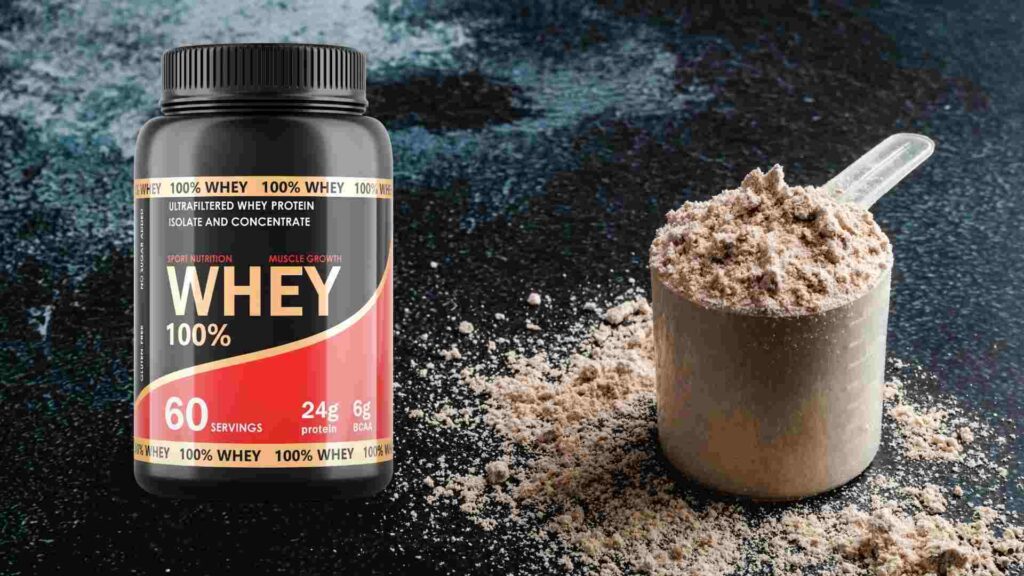Why is Protein Powder Bad for You?: Protein powder is a popular supplement among fitness enthusiasts, athletes, and health-conscious individuals. However, not everything that glitters is gold. While protein powders promise to help you build muscle, lose weight, or recover after workouts, there are potential downsides that everyone should know about. In this blog, we will discuss why protein powder can be bad for you and answer some frequently asked questions (FAQs) to help you make an informed decision.
Table of Contents
What is Protein Powder?
Protein powder is a dietary supplement made from various protein sources such as whey, casein, soy, or plant-based proteins like pea or rice. It is often marketed as a convenient way to meet your protein needs, especially for those with busy schedules or high protein requirements. Protein powders come in various forms, such as concentrates, isolates, and hydrolysates.
Why Protein Powder Can Be Bad for You
1. Hidden Additives and Chemicals
Many protein powders contain added sugar, artificial sweeteners, and preservatives. Consuming these additives regularly can harm your overall health, leading to issues like obesity, diabetes, and digestive problems. Some protein powders may also contain heavy metals such as lead, arsenic, and cadmium, which can accumulate in the body over time and cause long-term damage.
2. Digestive Issues
For some individuals, protein powders can cause digestive discomfort. Ingredients like lactose (in whey protein) or artificial sweeteners can lead to bloating, gas, or even diarrhea. If you are lactose intolerant or have a sensitive stomach, you may find protein powders hard to digest.
3. Excess Protein Intake
Consuming too much protein, whether through powder or food, can put unnecessary strain on your kidneys. Over time, this can lead to kidney damage or worsen pre-existing conditions. High protein intake can also cause dehydration and calcium loss, increasing the risk of kidney stones and osteoporosis.
4. Over-reliance on Supplements
Protein powder is a supplement, not a substitute for real food. Many people rely too heavily on protein powders, neglecting whole foods that offer essential vitamins, minerals, and fiber. Whole foods like lentils, eggs, and paneer provide not only protein but also other nutrients necessary for overall health.
5. Not Regulated by Authorities
In India and many other countries, protein powders are not strictly regulated. This means that the quality and safety of the product are often uncertain. Some brands may use low-quality ingredients or make false claims, putting consumers at risk.
6. Allergic Reactions
Protein powders may contain allergens such as soy, nuts, or dairy, which can trigger allergic reactions in sensitive individuals. Symptoms may range from mild discomfort to severe reactions like anaphylaxis.
Who Should Avoid Protein Powder?
- Pregnant and breastfeeding women should consult a doctor before consuming protein powder.
- Children and teenagers should avoid protein powders as their nutritional needs are best met through whole foods.
- Individuals with kidney problems should avoid high protein intake unless advised by a healthcare professional.
FAQs: Why is Protein Powder Bad for You?
Q1: Can I take protein powder every day?
Yes, but it depends on your overall diet and health. If you are meeting your protein needs through food, daily protein powder may not be necessary and can even be harmful if overused.
Q2: Are natural protein powders better?
Natural protein powders without additives, artificial sweeteners, or preservatives are generally a safer option. However, they can still pose risks if consumed in excess.
Q3: What are some good alternatives to protein powder?
Whole foods like eggs, lentils, beans, chickpeas, milk, curd, paneer, fish, and chicken are excellent sources of protein. They also provide additional nutrients that protein powders lack.
Q4: How can I check the quality of protein powder?
Look for third-party testing certifications, minimal ingredient lists, and reputable brands. Avoid powders with added sugars, artificial flavors, and unverified claims.
Q5: Can protein powder cause weight gain?
Yes, if consumed in excess. Protein powders can add extra calories to your diet, which may lead to weight gain if not balanced with physical activity.
Final Thoughts
While protein powder can be a convenient way to boost your protein intake, it is not without risks. Understanding the potential downsides and consuming it responsibly is crucial. Always choose high-quality products, and prioritize whole foods in your diet. Remember, health is about balance, not shortcuts.
If you have specific health conditions or concerns, consult a healthcare professional before incorporating protein powder into your diet.
By keeping these points in mind, you can make a more informed decision about whether protein powder is right for you. Your health is your wealth, so always choose wisely!

